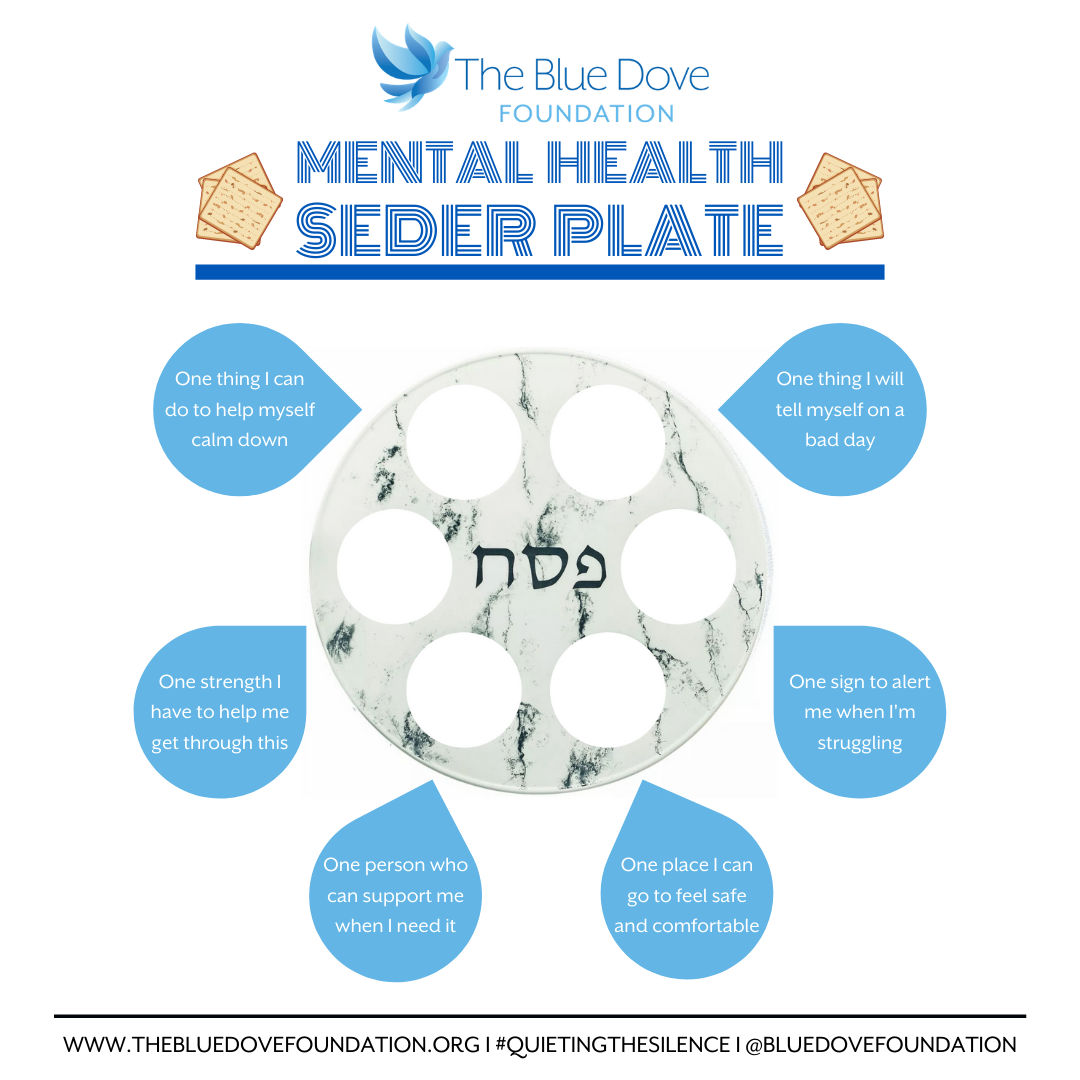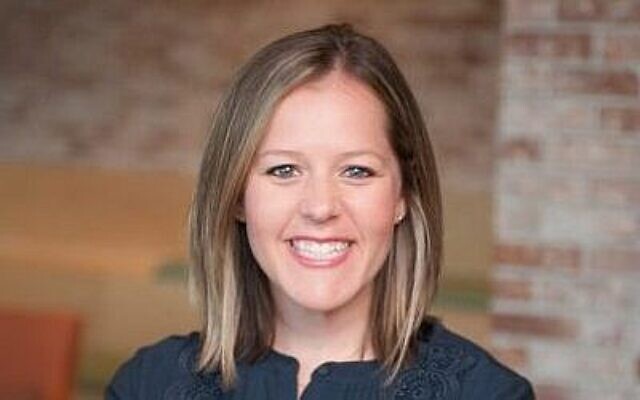How to Bring Mental Health into Seder?
The Blue Dove Foundation created special Passover Seder Plate and other resources to support mental health during the coronavirus pandemic.
Like everyone else, Atlanta Jewish organizations are being required to rethink their programming during the COVID-19 pandemic. At The Blue Dove Foundation, which helps Jewish Atlanta address mental illness and substance abuse, the question became: How do you bring mental health into the Passover celebration?
“We had to cancel three programs in March and had five programs canceled in May,” said Gabby Spatt, foundation executive director. “We recognized that celebrating Passover this year is going to be different. There won’t be 30 people around the table.”
Acknowledging that she isn’t trained as a Jewish educator, she turned to her education team which put together a couple of resources that could be added to the traditional seder.
The Mental Health Passover Seder Plate provides self-care tools that can help seder participants be conscious of their mental health. “Self-care refers to ways we attend to our mental, emotional, physical and spiritual well-being,” The Blue Dove’s resource explains. Referring to the sense of being stuck in a metaphorical Egypt, it points out that “The more of these tools we have, the better prepared we are for days when we are at our most vulnerable. We can use Passover as a time to stop and reflect not only on the Exodus story but on our own mental health.”
The symbols on the Mental Health Passover Seder Plate suggest participants reflect on six questions: One thing I can do to help myself calm down; one thing I will tell myself on a bad day; one sign to alert me when I’m struggling; one place I can go to feel safe and comfortable; one person who can support me when I need it; and one strength I have to help me get through this.

The Mental Health Passover Seder Plate also provides a mental health perspective on the traditional symbols on seder plates, such as the shank bone, egg, bitter herbs and charoset. Instead of, or in addition to, the traditional four questions, it suggests that participants ask: Am I still in Egypt today, or am I free now? From which struggles have I freed myself? Who in my life can be my outstretched arm? And, what’s on my mental health seder plate?
Another resource The Blue Dove created focuses on gratitude during a time of social distancing. “Jewish culture teaches that in moments of pain, fear and instability, a gratitude practice can help us cope. For those living with depression or other mental illnesses, it can be even more important – especially right now, when many of us remain isolated from others.”
The questions that can spur a sense of gratitude include: What are three things I have that I need right now? What is one small, everyday thing or activity that makes me feel good?
Spatt told the AJT that the gratitude during social distancing resource “was created just for this situation.” However, creating mental health resources for Jewish holidays is not new for The Blue Dove. “We did this for Chanukah, too,” Spatt said. “We had eight nights of gratitude.” The whole idea, she explained, is to help people reframe their minds to be grateful.
“Our focus is on mental health and we’re constantly thinking of what is happening and how we can provide resources” that are specific to Jewish traditions, she said. For instance, at the end of March, the organization held a virtual self-care challah making class. Spatt was amazed that the program, put together in six days, ended up including 138 participants from around the country. And the organization raised $1,000.
According to Spatt, The Blue Dove doesn’t provide therapy to people with mental health issues. “We create tools and resources for organizations wanting to do mental health programming. We were ahead of the curve” on the coronavirus. “We started immediately with the challah bake.” Jewish mental health workshops, typically held in a group setting, are now done virtually.
The quick efforts to provide sources to support mental health during the coronavirus epidemic are especially important because Mental Health Awareness Month starts April 30.
To learn more about the Mental Health Passover Seder Plate , visit https://thebluedovefoundation.org/mentalhealthpassoverseder/ and for Gratitude in a Time of Social Distancing resource, visit www.thebluedovefoundation.org/socialdistancinggratitude.




comments